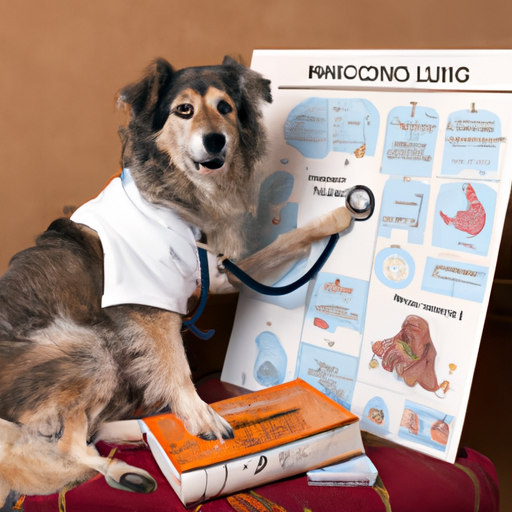Introduction
Hello, dear caregiver. You might be wondering, “Why do I need to know how to prevent lymphoma in dogs?” A significant part of caring for our beloved, four-legged companions is ensuring they live a long and healthy life. Unfortunately, like humans, dogs too can become victims of various types of cancers, one of the most common being lymphoma. But fear not, let’s delve into the steps you can take in your role as a caregiver to help prevent the onset of this illness.
Understanding Canine Lymphoma
Lymphoma is a type of cancer that affects the lymph nodes and can severely impact your dog’s immune system. As a caregiver, the first step in prevention is understanding.
- What is Lymphoma? – Lymphoma in dogs is a malignancy of lymphocytes, a type of white blood cell that plays a crucial role in the immune system.
- Types of Lymphoma – Lymphoma can be classified into five types depending on the area they affect. Multicentric, gastrointestinal, mediastinal, cutaneous, and extranodal lymphoma.
- Causes of Lymphoma – The exact cause of lymphoma in dogs is unknown. Possible factors include genetic predisposition, environmental factors, and viral infections.
The table below provides a brief overview of the types of lymphoma and the areas they affect:
| Type of Lymphoma | Area Affected |
|---|---|
| Multicentric | Lymph nodes |
| Gastrointestinal | Stomach and intestines |
| Mediastinal | Thymus and mediastinum |
| Cutaneous | Skin |
| Extranodal | Various (eyes, central nervous system, bone, etc.) |
The Role of Diet in Prevention
The food your dog consumes plays a crucial role in his overall health, including the prevention of diseases like lymphoma. Here are some dietary tips:
- Feed your dog a balanced, nutritious diet.
- Include omega-3 fatty acids in their diet, which have anti-inflammatory properties.
- Avoid foods with artificial additives and preservatives.
- Consider a diet rich in antioxidants, as they can strengthen the immune system.
Regular Vet Check-ups
Routine veterinary care is key in catching any illnesses early, including lymphoma. Regular vet visits allow for:
- Early detection of any potential health concerns.
- Regular blood tests and physical examinations.
- Vaccinations against certain types of diseases.
Maintaining a Healthy Lifestyle
Maintaining a healthy lifestyle for your dog is not only beneficial for their overall well-being but also aids in preventing diseases such as lymphoma. Here are some tips:
- Regular exercise keeps your dog fit and helps boost their immune system.
- Limit exposure to harmful toxins and chemicals.
- Maintain a healthy weight for your dog. Obesity can lead to various health issues, including cancer.
FAQ
Q: Can all dogs get lymphoma?
A: Yes, all dogs are susceptible to lymphoma, but some breeds are more prone.
Q: Is lymphoma in dogs painful?
A: Dogs may not show signs of discomfort until the later stages of the disease.
Q: Can a dog survive lymphoma?
A: With treatment, dogs can go into remission. However, it’s important to consult with a vet for a detailed prognosis.
Q: How can I tell if my dog has lymphoma?
A: Symptoms include swollen lymph nodes, loss of appetite, and lethargy. Regular vet check-ups are key for early detection.
Remember, as a caregiver, your role is invaluable in providing the best possible care for your canine companion. Awareness, preventive measures, and early detection are your best tools in fighting diseases like lymphoma.



